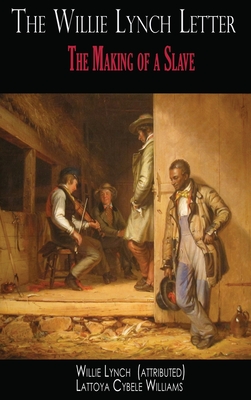
The Willie Lynch Letter: Separating Fact from Fiction in African American History
Podcast: Play in new window | Download (Duration: 4:00 — 3.7MB) | Embed
Subscribe: Amazon Music | iHeartRadio | Podchaser | Email | TuneIn | RSS | More
by Scotty T Reid, BTRN
The Willie Lynch Letter is a controversial document that has sparked much debate and discussion in African American history. This essay will examine the arguments surrounding the authenticity and impact of the letter. While some argue that the letter is a fictional creation with no historical evidence to support its existence, others believe that it serves as a cautionary tale, reflecting the psychological tactics used by slave owners. Additionally, the letter has been criticized for perpetuating harmful stereotypes about African Americans. However, it can also spark important discussions about racism and classism. By critically analyzing these arguments and counter-arguments, we can gain a deeper understanding of the Willie Lynch Letter and its place in African American history.
The Willie Lynch Letter is often dismissed as a fictional document due to the lack of historical evidence supporting its existence prior to 1970. Researchers have been unable to find any references to the letter in historical records or archives. This raises doubts about the authenticity of the document and its claims. Additionally, the language and style of the letter do not match the time period it claims to be from. The content of the letter is highly exaggerated and sensationalized, presenting a distorted view of slavery and its effects on African Americans.
Another argument against the authenticity of the Willie Lynch Letter is its perpetuation of harmful stereotypes. The letter portrays African Americans as inherently violent and unintelligent, reinforcing the idea of white superiority and black inferiority. By presenting African Americans as passive victims of their circumstances, the letter ignores the resilience and achievements of African Americans throughout history. This perpetuation of stereotypes can have long-lasting negative effects on the perception and treatment of African Americans.
However, despite the lack of historical evidence, the Willie Lynch Letter can still serve as a cautionary tale. Even if the letter is fictional, it highlights the brutality and dehumanization of slavery. It reminds us of the importance of acknowledging and learning from historical injustices. By studying the tactics described in the letter, we can gain insight into the methods of control and division that were likely employed by slave owners. This understanding can help us to comprehend the long-lasting effects of slavery on African American communities.
Furthermore, the Willie Lynch Letter can spark important discussions about racism and classism. The letter can be used as a starting point for conversations about systemic racism and the ways in which it continues to impact society today. By analyzing the tactics described in the letter, individuals can engage in critical thinking and challenge societal norms and prejudices. This can lead to greater awareness and understanding of the historical context in which racism and discrimination persist.
Additionally, the Willie Lynch Letter can be viewed as a tool for education and promoting empathy. By studying the letter, individuals can develop a deeper understanding of the psychological tactics used by slave owners and the lasting effects of slavery. This knowledge can help to foster empathy and compassion towards the experiences of African Americans. It can also encourage individuals to reflect on their own biases and prejudices, leading to personal growth and a more inclusive society.
In conclusion, the Willie Lynch Letter is a controversial document that has been the subject of much debate in African American history. While there is no historical evidence to support its authenticity, the letter can still serve as a cautionary tale and spark important discussions about racism and classism. However, it is important to critically analyze the letter and its impact, as it perpetuates harmful stereotypes and presents a distorted view of slavery. By engaging in these discussions, we can gain a deeper understanding of African American history and work towards a more inclusive and just society.